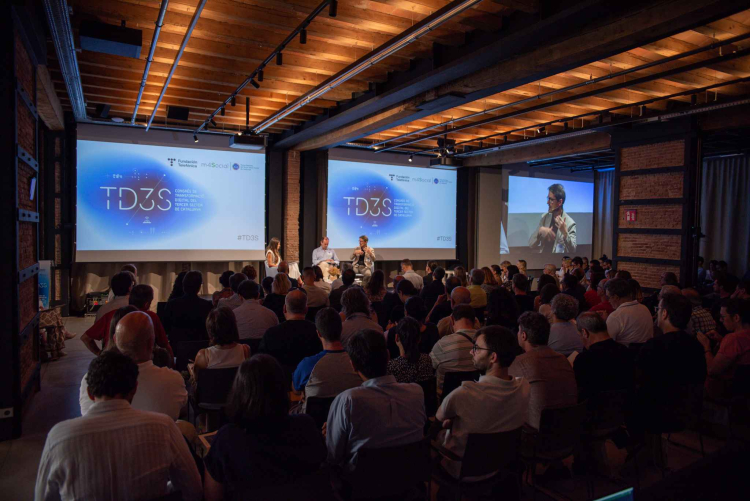The Social Hub, located at Carrer Girona number 34 in Barcelona, hosted the Digital Transformation Congress of the Third Social Sector of Catalonia last Tuesday, July 11. The Table of Entities of the Third Social Sector of Catalonia through the m4Social project and with the collaboration of Fundación Telefónica organized the successful day with the aim of reflecting on emerging trends and technologies that can enhance social action and take the pulse of the state of digitization of the Third Social Sector in Catalonia. Specifically, the Digital Transformation Congress of the Third Social Sector of Catalonia focused on exploring the possibilities offered by new information and communication technologies to improve people's lives. In this sense, the two main themes of the successful day were artificial intelligence and cyber security, as well as the presentation of several disruptive projects and several expert voices with the desire to share tools to continue digitally transforming the third sector social and continue to incorporate technological culture into the essence of social entities.
In the first place, Joan Cruz, director of institutional relations of Fundación Telefónica, Francina Alsina, president of the Board of Entities of the Third Social Sector of Catalonia, and Sonia Fuertes, Commissioner of Social Action of Barcelona City Council, gave welcome to a successful day. Afterwards, Carlos Palacios, director of social action and volunteering at Fundación Telefónica, and Xavier Trabado, referent of m4Social to the board of directors of the Taula d'Entitats del Tercer Social Sector de Catalunya, spoke about the importance of the transformation digital to social entities, to identify technology as a key element within organizational plans and the need to count on the support of public and private institutions.
The successful day then focused attention on the role of artificial intelligence. Richard Benjamins, Telefónica's chief AI & data strategist, discussed uses, abuses and opportunities. Benjamins emphasized the need to promote a social and ethical use of artificial intelligence that would help solve real problems, as it was a transformative, transversal technology that offered many possibilities. Benjamins urged recognizing the value of data and managing it properly to get the most out of it. Afterwards, a round table was organized with expert voices, where it was discussed how artificial intelligence could help collect people's needs massively and generate consensus and how to explore new forms of organization and interaction in social entities, as well as the possibility of opening the door to delving into free software. Likewise, they discussed artificial intelligence legislation and the ethical role of new technologies. Among the risks, the experts highlighted short-term misinformation, medium-term employment and the alignment of technological evolution with what is wanted as a long-term society. Also, as risks, the need for citizens to establish the limits of technology, the danger that the third social sector will be left out of the digital transformation and the appearance of new vulnerable groups, that is to say, was highlighted people who will not have the ability to adapt digitally in the face of disruptive changes. Among the opportunities, the experts proposed to approach the changes with imagination, innovation, fearlessness, ethical responsibility and tools to be able to reach further and generate more impact.
Subsequently, the successful day focused attention on the role of cyber security. Javier Sierra, Telefónica's cyber security expert, discussed challenges, threats and best practices. Sierra recommended that social entities adopt a proactive attitude and manage risks. Sierra commented on some of the most frequent practices such as identity theft, loopholes in data management or blocking the availability of services. Sierra predicted that cyber security would become a differentiating element between organizations in the future and urged to bet on advanced technologies to protect social entities. In this line, Sierra proposed a decalogue of good practices: solid security policy, access control, diversification of backups, advanced protection of all assets, updates, network security, monitoring of information in transit, support management, activity registration and business continuity. In summary, Sierra advised using security measures and controls, encrypting information, making backup copies and using two-factor authentication. Next, entrepreneur Pau Garcia-Milà shared a transformative digital strategy for social entities. Garcia-Milà put on the table the fact that it was the recipients who decided that they wanted to consume and that the trend was that they wanted more information in less time. Thus, Garcia-Milà encouraged organizations to create exciting and disruptive strategies using artificial intelligence tools.
Finally, several successful cases of social entities in terms of digital transformation were presented.



